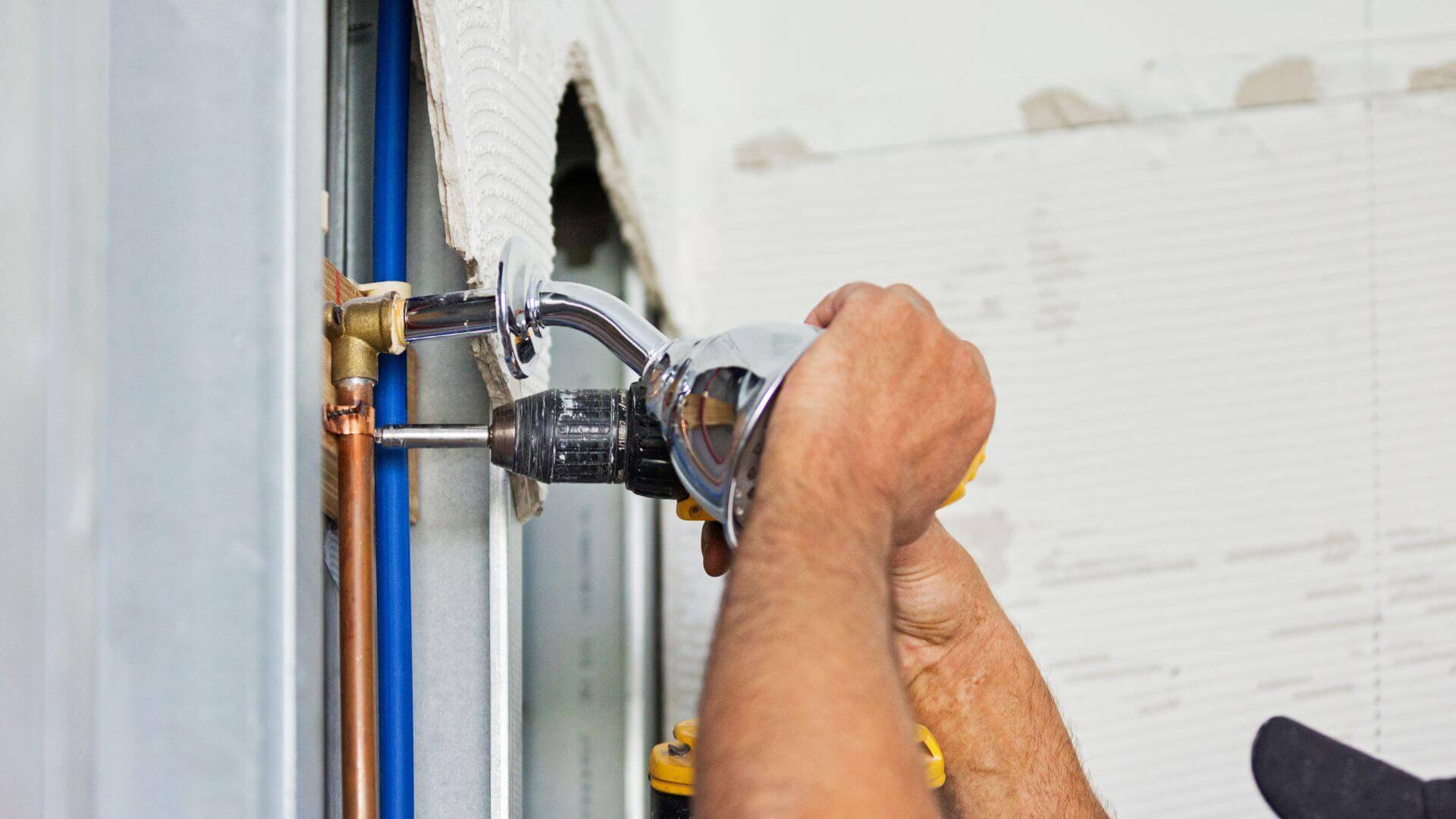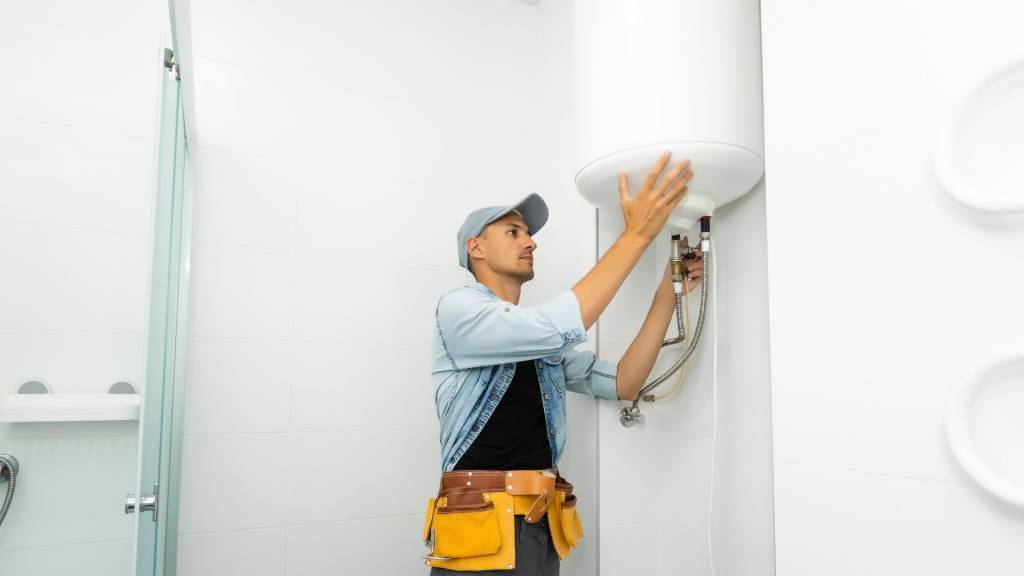With the rise of reality renovation shows and YouTube tutorials, DIY projects have never been more popular in Australian households. And while we encourage you to give things a go yourself to save money on smaller jobs, we urge you to be more cautious when dealing with hot water systems. We’re seeing too many costly mistakes being made that not only pose serious safety hazards but also don’t meet our strict Australian plumbing laws.
Let’s unpack whether you really can repair a hot water system yourself, the risks to consider, and when it’s time to call in a licensed professional.
Most Common Types of Hot Water Faults
Before we dive into the DIY debate, it helps to know what can go wrong and what homeowners are usually up against. Firstly, your issues largely depend on what kind of hot water system you have. Here are the types of water heaters and the most common issues associated with each.
- Electric systems: Faulty heating elements, tripped circuit breakers, thermostat failures.
- Gas systems: Pilot light outages, gas line issues, blocked flues, loose connections.
- Solar systems: Pump failures, collector panel damage, valve leaks, and anode rod corrosive elements.
- Heat pump systems: Compressor faults, low refrigerant, and airflow obstructions.
Homeowners often try to fix broken systems themselves, sometimes successfully, but many attempts require a callout to fix what should have been handled by a professional plumber in the first place.

The Legal Side in Australia
In Australia, the rules are clear: most hot water system repairs are not a DIY job. Australian plumbing and electrical regulations require that hot water system installation and repair be carried out by a licensed tradesperson. This is because these systems involve both pressurised water and electricity or gas.
There’s a reason electricians must be TAFE-certified, and most people are well aware of the dangers when dealing with gas. Both electricity and gas pose significant safety risks if handled incorrectly.
That said, you can do simple maintenance, such as:
- Checking the pressure relief valve
- Cleaning around the unit
- Adjusting the thermostat (if it’s designed for user control)
But anything involving water or power connections, like replacing valves, elements, or wiring, must be done by a licensed plumber and/or electrician. Attempting to do these yourself can lead to voided warranties, fines, failed insurance claims, or even liability if a faulty repair causes damage or injury.
Safety Considerations During DIY Repair
It’s also crucial to put your personal and your family’s safety at the forefront of decision-making. As we’ve pointed out, hot water systems combine electricity, gas, pressurised water, and scalding temperatures, all of which can create serious hazards. Here are the main risks to keep in mind:
- Electrical hazards – Electric water heaters’ exposed wiring or faulty connections can cause shocks, burns, or even fires if handled without proper training and tools.
- Gas leaks and combustion risks – For gas systems, even a minor mistake can result in leaks, carbon monoxide build-up (can be fatal) or, worst-case scenario, an explosion.
- Scalding and water pressure dangers – A hot water tank stored under pressure can cause severe burns or injuries if fittings are released incorrectly or water heater temperature controls fail.
Troubleshooting Steps You Can Do Yourself
Here’s what you need to know before you pick up the tools for DIY jobs.
Checking the power or gas supply
You would be amazed at how often the issue is as simple as a tripped switch or the gas supply being turned off. For electric systems, check your home’s power supply at the switchboard to see if a circuit breaker has tripped. For gas units, confirm the gas isolation valve (usually located on the gas meter outside or near the unit itself) is turned on. Confirm these basics before assuming a bigger fault.
Resetting the thermostat or circuit breaker
Many electric hot water systems have a reset button on the unit’s thermostat (often behind a small cover on the tank). If it has tripped after a power surge, pressing it may restore operation. You should also check the circuit breaker at your switchboard (as above), as this can cut power to the system if overloaded.
Checking for obvious leaks or obstructions
A quick inspection for puddles for potential hot water system leaking, as well as dripping drain valves or blocked vents, can help identify the problem before calling in help. The power and water supply are common areas that can be easily fixed yourself.
If the issue involves wiring, gas connections, the heating element or anything beyond a basic reset, it’s time to call in the pros.
When to Call a Professional for Hot Water Repairs

It’s important to know when to stop and call in the experts.
Here’s the Red flags to look out for urgent professional help:
- Persistent leaking hot water system
- Strange noises
- Smell of gas
- Burnt wiring
- The system keeps tripping the circuit
These are all symptoms that should only be handled by a licensed plumber or electrician. Additionally, a qualified technician not only fixes the immediate issue but also checks the entire system for problems, ensures compliance with Australian plumbing and electrical standards, and often helps extend the lifespan of your unit.
Cost Comparison: DIY vs Professional Repairs
The reason why most people get themselves into a pickle with DIY is their desire to cut down on costs. And as we’ve shown, that can be beneficial for small DIY tasks, but the reality can be very different once you factor in long-term risks associated with handling hot water system issues yourself.
For example, a DIY repair might save you $100–$150 for a service call, but let’s say you incorrectly replace a heating element or valve (both common mistakes), which leads to leaks, tank damage, or even electrical hazards. The result? Potential costs of $1,000–$2,500 for a full system replacement or, as we’re increasingly experiencing, an emergency call-out.
Furthermore, many DIYers fail to consider their warranties and insurance. You’ll find that most hot water systems come with manufacturer warranties that are only valid if repairs and maintenance are carried out by a licensed tradesperson. It just doesn’t make sense to risk repairing it yourself. Likewise, home insurance policies won’t cover damage caused by unlicensed work. Choosing a professional means you’re not only protecting your system but also your household finances and peace of mind.
Preventative Maintenance Tips
Like most machinery, the best way to prevent issues with your hot water system is regular maintenance. In our experience, the customers who report the fewest problems are those who book professional inspections and servicing at least every 2 years.
Regular preventative maintenance also helps extend the life of your system legally and safely, which means longer times between full replacements. It ensures all components are working correctly and reduces the risks of the issues we’ve discussed in this post. Ideally, scheduling inspections every 12–24 months allows a licensed plumber or technician to keep your hot water system working at its optimal performance.
Call the Pros Before It’s Too Late

We hope we’ve gotten the message across that carrying out significant DIY repairs on your hot water system is just not worth it, both financially, skill-wise, and because it’s against the law.
To protect yourself, we encourage you to let the pros handle your water heater issues. Not only will you gain peace of mind, but you could potentially save yourself from further costly repairs or even system replacement. Reach out to us at Same Day Hot Water Service to get a professional inspection of your hot water system.
FAQs
What is the most common cause of problems in a hot water heating system?
The most common cause of hot water system malfunctions is a faulty heating element or thermostat. A close second is the need for replacement of the temperature-pressure relief valve.
How to fix a hot water system in Australia?
To fix a hot water heater tank system in Australia, it’s safest to contact a licensed plumber or electrician.
Is it worth it to repair a hot water heater?
Repairing a hot water heater can be worth it if the issue is minor and the unit is relatively new. However, for old gas water heaters, it may be worth getting a new hot water system.
What is the most common cause of no hot water?
The most common causes of hot water system problems are a tripped circuit breaker, a malfunctioning heating element, sediment buildup in the hot water pipes, a turned-off gas supply, or a failed heating element or water temperature pressure relief valve.



